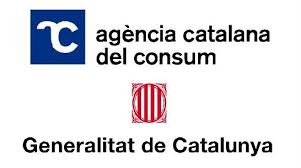
30 Jun Catalan Consumer Agency: a useful tool for resolving disputes without going to court
Catalan Consumer Agency: a useful tool for resolving disputes without going to court
The Catalan Consumer Agency (ACC) is a public body of the Government of Catalonia that protects the rights of consumers and users. Its role goes far beyond simply providing information: it also offers pathways to resolve consumer disputes through out-of-court methods, avoiding the need to go to court.
When can you turn to the ACC?
Consumers can contact the ACC when they have a dispute with a business or professional based in Catalonia, in situations such as:
- Defective products or breach of conditions
- Services not provided or provided incorrectly (banking, telecom, insurance, travel…)
- Unjustified charges or abusive clauses
- Issues with contracts, repairs, subscriptions, or warranties
Before filing a complaint, consumers must try to resolve the issue directly with the company. If the response is negative or there’s no reply within a reasonable time, the ACC can step in.
What procedures does the ACC offer?
It’s important to clarify that the ACC operates solely in the out-of-court sphere. Both mediation and consumer arbitration are administrative, voluntary, and free of charge.
In the case of consumer arbitration:
- The ACC gets involved only if both parties agree to submit to the process. The Arbitration Board appoints a panel that issues a binding award.
- The court only steps in under two circumstances:
- If one party refuses to accept arbitration (and is not part of the system).
- If one party does not comply with the award, which can then be enforced in court like a judgment.
What procedure applies depending on the amount involved?
The ACC applies financial thresholds to determine the type of arbitration procedure:
- Up to €300: simplified procedure (handled in writing, no hearing).
- Between €300 and €2,000: simplified or ordinary, depending on complexity.
- Over €2,000: ordinary procedure by default.
This structure ensures efficient use of public resources, proportionality, and a balance between speed and legal safeguards.
The ACC’s two main out-of-court mechanisms:
- Consumer mediation
- Free and voluntary
- Managed by specialized public staff
- Seeks amicable agreements
- Fast resolution: most cases are solved within weeks
- Consumer arbitration
- Also free and out-of-court
- Can be initiated if the business is part of the system or agrees to it
- An arbitration panel issues an award with the same value as a court judgment
What if the dispute involves a business or professional?
Although the ACC is designed to protect consumers, it’s common for small businesses or self-employed professionals to also face disputes. Two main situations must be distinguished:
- The business has a dispute with a supplier or service provider
In this case, the ACC is not competent, as it only intervenes in consumer-business relationships. The alternatives include:
- Reviewing the contract for dispute resolution clauses
- Trying a direct negotiation
- Sending a formal complaint (via certified email or postal service)
- Using commercial mediation or arbitration (via chambers of commerce, professional associations…)
- As a last resort, taking the case to ordinary courts
- The business has a dispute with a customer
Here, the ACC may intervene:
- The customer can file a complaint
- The business can respond, agree to mediation, or accept arbitration
- Active participation improves the business’s image and helps avoid unnecessary legal action
Voluntarily joining the arbitration system can serve as a trust mark for customers.
When is it necessary to go to court?
Taking legal action should always be the last resort, only when out-of-court solutions are not applicable or have failed.
Going to court may be appropriate when:
- The company refuses arbitration and mediation fails
- Compensation claims require complex evidence or legal arguments
- The conflict falls outside the ACC’s remit (e.g., business-to-business issues, employment or commercial disputes)
- There is already an active court case on the same matter
- A binding arbitration award is ignored and must be enforced by the court
In summary, courts intervene:
- As a primary route when no ADR (Alternative Dispute Resolution) is possible
- As a backup if ACC mechanisms have failed
- As an enforcement channel for arbitration awards
The ACC as a pressure valve for the judicial system
Organic Law 1/2025 strengthens the role of ADR mechanisms, making it mandatory in many cases to attempt an out-of-court solution before filing a civil lawsuit.
In this context, the ACC acts as a pressure valve for the courts, resolving thousands of consumer disputes every year without the need for trials. It also promotes a culture of dialogue and mutual trust in consumer relations.
More information
For details on procedures, deadlines, claim forms and lists of businesses participating in consumer arbitration:
👉 https://consum.gencat.cat
